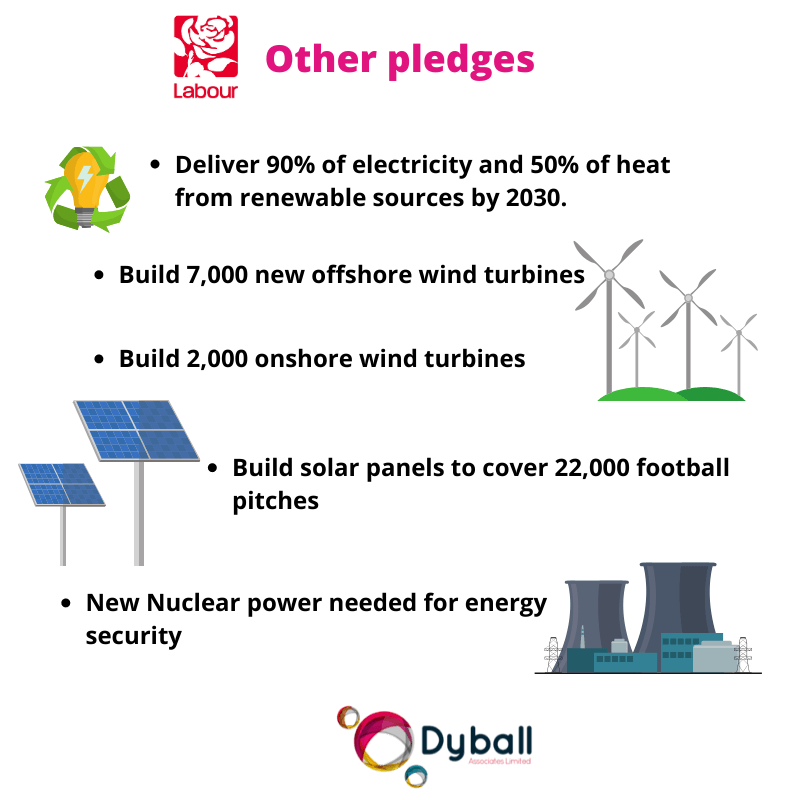General Election 2019: How would the Labour Party Manifesto impact the Energy Sector?
Jeremy Corbyn’s Labour party is notorious for promising to spend billions of pounds of taxpayer money on, well, everything, so in their manifesto for the upcoming 2019 general election just what are they planning for the energy industry?
A Green Industrial Revolution
Labour’s manifesto certainly aims high when it comes to tackling the issues of climate change. It promises to create 1 million new jobs to transform the energy sector and will implement a Green New Deal (taken straight from the Democrats in the USA) to dramatically cut with the objective of dramatically cutting carbon emissions by 2030.
As well as a lot of political rhetoric about social justice and persistently blaming the Tories for failing to protect the environment, the manifesto also contains the following pledges –
● The launching of a £400 billion National Transformation Fund
● £250 billion promised for a Green Transformation Fund dedicated to renewable and low carbon energy and transport.
● The creation of a National Investment Bank to provide £250 billion in lending for infrastructure, enterprise and innovation. The caveat to receiving funds; the applicant must promise to use the money to decarbonise the economy.
● Promise to tackle corporations by changing the criteria a company must meet in order to be listed on the London Stock Exchange. Any company Labour deems to be contributing to climate change and the environmental 'emergency’ will be delisted.
The Big one: Nationalisation
Of the most interest and the pledge that will have a massive impact on the industry if Labour gets into power is it’s aim to renationalise the UK’s energy sector.
The manifesto states: ‘In public hands, energy and water will be treated as rights rather than commodities, with any surplus reinvested or used to reduce household bills. Whereas private network companies have failed to upgrade the grid at the speed and scale needed, publicly owned networks will accelerate and co-ordinate investment to connect renewable and low carbon energy while working with energy unions to support energy workers through the transition.’
Under the party’s plans:
● A new UK National Energy Agency will own and maintain the national grid infrastructure and oversee the delivery of our decarbonisation targets.
● 14 new Regional Energy Agencies will replace the existing district network operators and hold statutory responsibility for decarbonising electricity and heat and reducing fuel poverty.
● The supply arms of the Big Six energy companies will be brought into public ownership where they will continue to supply households with energy while helping them reduce their energy demands .
Energy Sector biting back
In response to the Labour plans an energy industry lobby group has launched a campaign using social media advertising to criticise the policies.
The Energy Networks Association whose members include the National Grid and Scottish and Southern Energy has been running ads with the message ‘What matters more to you and your family? NHS spending or nationalisation of the energy networks?’
“These proposals for state-ownership of the energy networks would only serve to delay the huge amount of progress and investment that is already helping to make this country a leader in the move to green energy,” said National Grid when the re-nationalisation plan was first announced.
“At a time when there is increased urgency to meet the challenges of climate change the last thing that is needed is the enormous distraction, cost and complexity contained in these plans.”
As a result of concerns over the plans National Grid and SSE have opened offshore holding companies in order to protect their investors. The move won’t prevent them from being taken over if Labour win the election.
It’s not just the energy sector Corbyn seeks to nationalise with him vowing that he will bring rail, mail, water and energy into public ownership.
For Further Reading -
General Election 2019:Where do the Conservatives stand on energy?
The Impact of Brexit on the Energy Sector
Dyball Associates are proud to help
new supply businesses successfully launch in the UK market.
Through our energy market consultancy services, and the software we’ve developed, we’re supporting new UK electricity and gas suppliers get set up and start supplying.
For more information on how to start and manage an energy company, get in touch with Dyball Associates today.
Follow us on
Twitter and
LinkedIn to keep up to date with the latest news and updates in the energy industry.





